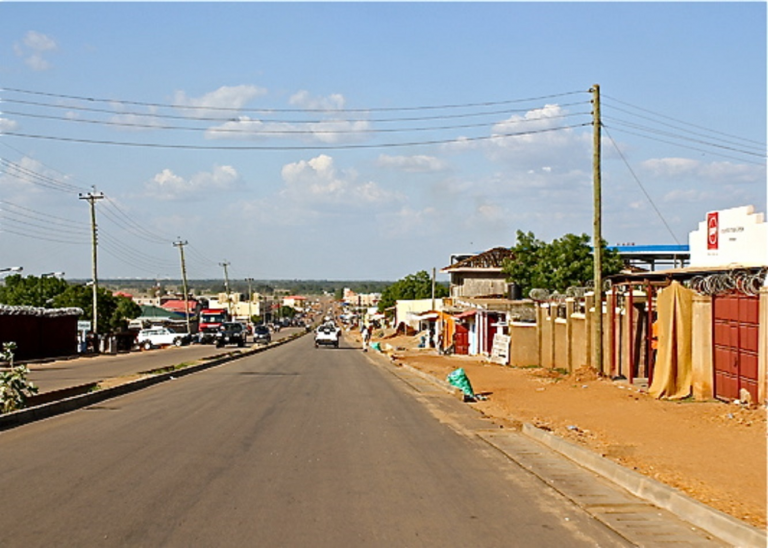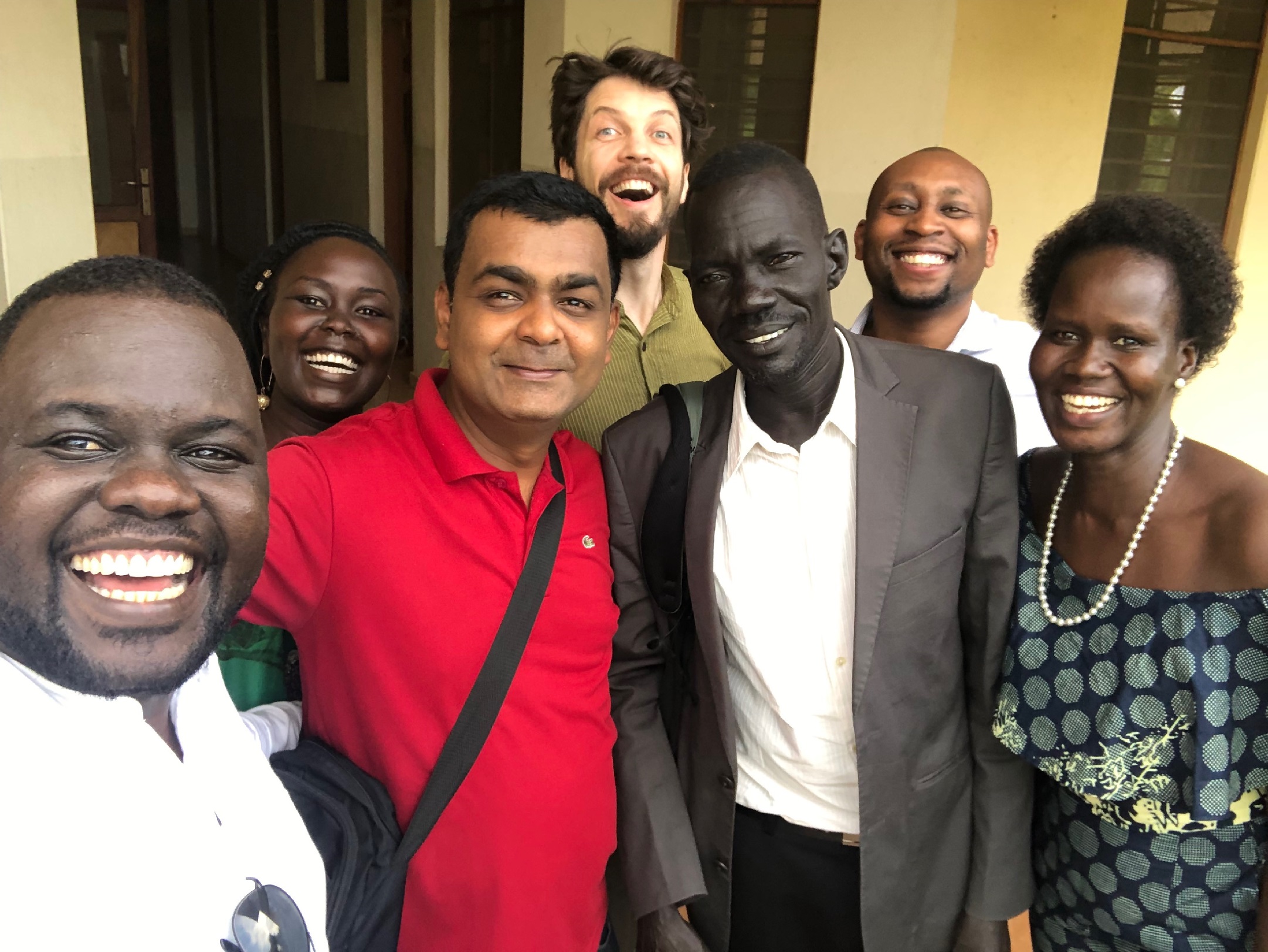David Vincent was a child soldier with the Red Army rebels, fighting for the independence of South Sudan. On the country’s 8th birthday, he wonders if the absence of celebrations in Juba is simply a lack of resources, or a sign of deep despair.
It now eight years since South Sudan gained its independence on 9 July 2011, after a long hard struggle. South Sudanese all over the world marked this anniversary with celebrations, until conflict broke out, once more, in December 2013. I see this day as a day when we stop, reflect and remember all those who gave their lives for the partial freedom we’re experiencing today - well, I say partial freedom because it doesn’t feel like South Sudanese are free yet. It is evident now that we moved from one war to another. Civilian killings are common and 80% of the population is armed. Signs saying “No guns allowed” can be seen even outside regular hotels.

For the last few years, South Sudan has ceased official celebrations of Independence Day. There are numerous reasons as to why this is, depending on who you talk to. The government says, “we don’t have the budget to celebrate this day,” and the opposing groups say, “we have nothing to celebrate.” Let’s say all of them are right for now. But I would like to argue that, we have all the reasons to remember this day - if not to celebrate, then at least to take time to reflect as a nation and ask ourselves, where did we go wrong?
That is exactly what I did on the morning of 9 July. I was in Juba with IofC Australia, looking into the possibility of reviving our peacebuilding work in South Sudan. I woke up and went for a long walk as I reflected. The streets were empty except for couple of people jogging.
I waved at them as I passed; it was nice that they waved back as well. It was a pleasant cloudy morning. There were a few drops of rain which made it even more perfect.
I was worried that it was going to pour down heavily as it had done the last couple of days but then a thought ran through my mind that the few drops were God’s way of saying, “I bless you, South Sudan” - that He was thinking about us at our particular time of need. I felt calmed and peaceful as I looked up to the sky and said, “Thank you, Father.” Since I was baptised in the refugee camp in Ethiopia when I was nine years old, I have tried hard to keep my faith alive. In fact, this is what I think has kept me alive all this time. I had a very funny way of praying back then, and now, thinking about it, I am not sure whether I was praying or quarrelling with God. Nevertheless, He kept me alive as he did some of my friends.
As I kept walking head down, I heard people singing. I saw a group of people marching and as they got closer, I recognised their song. These were the Red Army groups, all in uniform. I felt a chill run down my spine as I was overcome with acute nostalgia for our old days back at the training camp in Ethiopia, where we sat and sang for hours and hours throughout the night.
I stood on the roadside waving at them as they marched past. I held myself back from joining them. Later, I confirmed that they were from the Red Army Foundation, which was set up couple of years ago to bring together former Red Army child soldiers to help rebuild South Sudan. (You can read more about the Red Army Foundation in this 2013 article from The Guardian.) Unfortunately, the organisation was later politicised and used by some leaders for their own gain, derailing it from its original objective.
As I continued to reminisce, the famous speech of Dr John Garang de Mabior came to mind. John Garang led the war against the Arab North for 21 years until a helicopter crash killed him in 2015. He used to say, “You’re the seeds of tomorrow. We will liberate South Sudan and you’re the people who will run it.” Of course, when the going gets tough, a farmer sometimes will dig deep into his reserve of seeds, in order to feed the family. That is how we were taught our role. We were trained as boy soldiers to help fight the war. Some of the Red Army died at the frontline – a sacrifice of seeds - while others lived on to tell the tale.

Today, some of the former Red Army crew are scattered all around the world, living in the US, Canada, Australia, New Zealand and around East Africa. Some have gone on to gain the highest education level there is and are still waiting to run South Sudan. That’s where the mistake is: they are still waiting to be called. Some are part of various political groups and others are part of the current government, but they are not in any decision-making positions yet.
In conversations I have had with various individuals in our peacebuilding network lately, I can’t help but sense hopelessness. One of the people I met in Juba said, “We don’t trust each other. How can we ever work together?” Another person said, “We will try our best to do what we can, but those in decision-making positions must be serious. Otherwise we are heading nowhere.” Finally, someone else said, “There is nothing new, we have been in similar situations before and we worked through our difference and resolved them.” That, at least, sounded hopeful. As a nation, I feel it is vital for us to hold on to hope. We must not lose it. And perhaps our time of waiting is over.
While in Juba, I met with Rev. Dr Appollo Alfred Reuben, acting chair of the Healing and Reconciliation Committee of South Sudan, the group mandated to design a process of healing and reconciliation for the entire country. He said to me on this trip, “David, without healing we can never experience lasting peace. We’ve hurt each other terribly and for healing to happen, that is where we must start.” At the end of our meeting we prayed together and I left.
I have travelled back to South Sudan several times but I must admit that this last trip has really got to me. As I left Juba, I was hopeful. Whether people celebrate Independence Day or not, I chose to hold on to my sense of calling to continue to do what I can to support the healing and reconciliation in South Sudan. South Sudan needs support for peace now, more than even before. It is my sincere prayer that those in our network and in decision-making positions in Australia, South Sudan, and elsewhere will think seriously about how we can work together.
- David Vincent is IofC Australia’s Community Engagement Manager. He is the author of The Boy Who Would Not Die, a book about his experiences as a child soldier, refugee, and subsequent move to Australia.
Image of Juba courtesy of http://www.theniles.org

